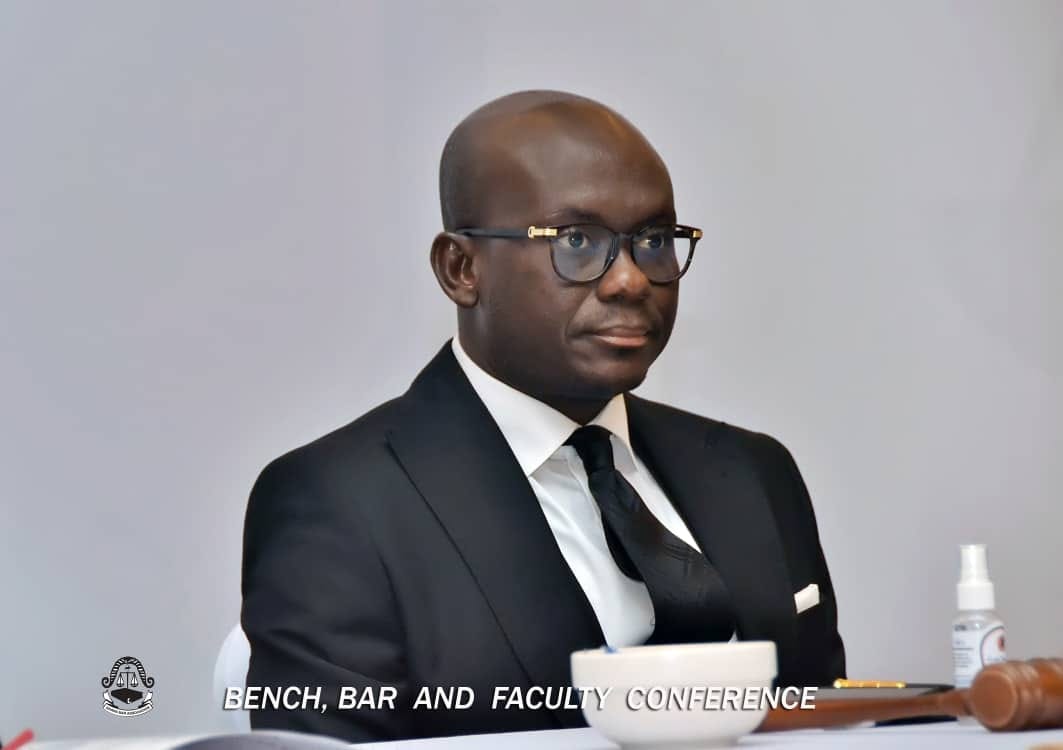E-levy Case: AG says plaintiffs’ action is devoid of genuine cause of action
The AG indicates that at all times in the passage of the E-levy Act, the Constitutional provision relating to a quorum for decision making in Parliament was followed and satisfied.

The Attorney General, Godfred Yeboah Dame has described the suit by Minority leader, Haruna Iddrisu and 2 others on the passage of the Electronic Transfer Levy Act as being devoid of a genuine cause of action thus calling on the Supreme Court to dismiss the same.
On May 26, 2022, the sole presiding Supreme Court judge, Clemence Honeyenuga JSC ordered the Attorney General’s Department to file its Statement of Case within 14 days in a case in which the Minority Leader in Parliament and his colleagues, Okudzeto Ablakwa and Hassan Ayariga have prayed the apex court averring that “the passage of the Electronic Transfer Levy Bill, 2021 on the 29th day of March 2022 by the 136 or the purported 137 Members of Parliament of the Majority Caucus and the Independent Member of Parliament who was present in the Chamber of Parliament contravened Article 104(1) of the 1992 Constitution of Ghana.”They are thus seeking inter alia;
A declaration that on the authority of the Supreme Court case of Justice Abdulai v. Attorney-General, Writ No. ...11/07/2022 (hereinafter referred to simply as Abdulai v. Attorney General) dated 9th March 2022, the constitutional quorum for decision-making and voting in Parliament within the meaning and intent of Article 104(1) of the 1992 Constitution is 138 Members of Parliament present in the Chamber of Parliament out of the 275 Members of Parliament; and not 136 Members of Parliament present in the Chamber of Parliament;
A declaration that per Article 104(1) of the 1992 Constitution of Ghana and on the authority of Abdulai v. Attorney General, on the 29th day of March 2022, when the Rt. Hon. Speaker of Parliament put the question for the second reading of the Electronic Transfer Levy Bill, 2021, Parliament lacked the required quorum to vote on the motion before the House, there being only 136 Members of Parliament present in the Chamber of Parliament;
A further declaration that because of relief (b) above, the purported vote on the motion for the second reading of the Electronic Levy Transfer Levy Bill, 2021 by the 136 Members of Parliament is in contravention of Article 104(1) and therefore null, void and of no effect whatsoever
A declaration in accordance with Article 104(1) of the 1992 Constitution of Ghana and on the authority of Abdulai v. Attorney, on the 29th day of March 2022, when the Rt. Hon. Speaker of Parliament put the question for the Consideration of the Electronic Transfer Levy Bill, 2021 to the house, Parliament lacked the required quorum to vote on each clause of the Electronic Transfer Levy Bill, 2021 before the House;
Staying true to the Supreme Court’s order and the timelines, the Attorney General has filed a 37-page response to the suit in which he indicates that at all times in the passage of the E-levy Act, the Constitutional provision relating to a quorum for decision making in Parliament was followed and satisfied.
He adds that per the facts of the case, the plaintiffs do not make any claim that Act 1075 was made either in excess of Parliament’s power or any other authority by law or under the Constitution, 1992.
The Attorney General also indicates that the suit does not invoke article 130(1)(b) of the Constitution 1992 nor any argument advanced to the effect that Parliament enacted the law in excess of its power.
Moreover, according to the Attorney General, the plaintiffs also do not allege per their suit that the mode of exercising Legislative power by Parliament as spelled out under the Constitution has been violated.
He notes surprisingly that article 106 does not feature at all throughout the plaintiffs’ statement of the case.
The AG notes however that the suit is on the contrary, merely about the enforcement of a previous decision in Abdulai v Attorney General and thus purports to raise questions about Parliament’s internal procedure upon which it embarked upon its Business on March 29, 2022.
Additionally, the Attorney refers to the doctrine of Political question by submitting that per long-settled authorities, the Courts of Ghana do not question the conduct of proceedings in parliament except if it bothers on violation of the Constitution or law of Ghana which he indicates that the plaintiffs failed to address per their instant action.
Therefore, the Attorney General draws the court’s attention to this all-important principle and notes per the above that the plaintiffs’ action is devoid of a genuine cause of action thus calling on the apex court to dismiss the same.


